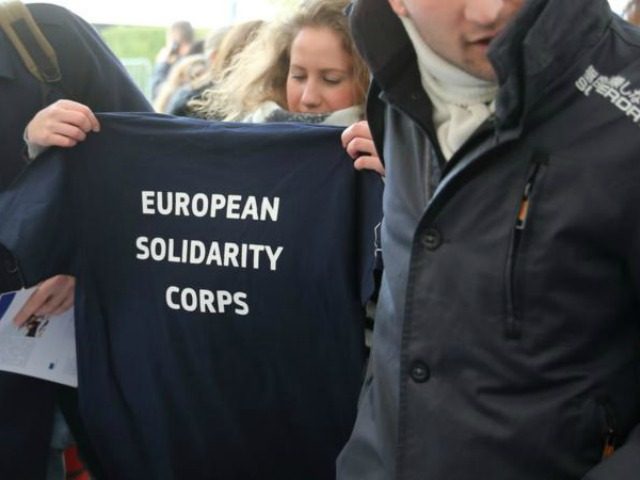The European Commission has launched a youth volunteer “solidarity” corps to foster unity with the European Union, by encouraging young people to relocate within Europe for up to a year to participate in social schemes.
With youth unemployment in some EU member states running as high as 46.5 per cent, the Commission has drawn up a scheme for 18-30-year-olds whereby they can take up voluntary placements, supplemented by a grant, or occupational placements such as traineeships or apprenticeships in a range of sectors.
It hopes to enrol 100,000 within the corps by the end of 2020 with the aim of fostering solidarity between member states, by engaging them primarily to assist with tackling national crises.
The corps was first announced by Commission President Jean-Claude Juncker in his 2016 State of the Union address, in which he said: “We often show solidarity most readily when faced with emergencies. When the Portuguese hills were burning, Italian planes doused the flames.
“When floods cut off the power in Romania, Swedish generators turned the lights back on. When thousands of refugees arrived on Greek shores, Slovakian tents provided shelter. In the same spirit, the Commission is proposing today to set up a European Solidarity Corps.”
That vision was realised on Wednesday with the launch of the corps with a recruitment drive outside the Commission’s headquarters in Brussels.
Surrounded by promotional baseball caps, T-shirts, and signing-on forms, in a tent outside headquarters, outgoing Vice President Kristalina Georgieva called it a chance to help “our young people do what you are best at – excite the rest of us about the unity of Europe”, Euractiv reported.
Volunteers will have their travel and insurance costs covered by a grant, as well as living expenses and “pocket money”, while those who find intern and apprentice roles will be paid a wage.
But it is not clear how much money the Commission is allocating the scheme, as funding is being drawn from a range of existing volunteer programmes, including the Erasmus+ programme, among others.
Consequently, the corps has been met with muted enthusiasm even from ardent federalists. The youth NGO Young European Federalists (JEF) Europe said they welcomed the corps as an “effective tool to foster citizen engagement and employability among young people, as intended by the division of the Corps into a volunteering and a professional pillar”.
But they added: “While we support the aims of increasing youth mobility and social engagement, we regret to see that the Commission continues to reallocate funds from existing programmes.”
The corps, they said, seemed to be a “commendable … in principle” but added they “regret that funds will be diverted from established flagship European initiatives that have a tangible social impact, towards new and untried programmes with questionable outcomes.”

COMMENTS
Please let us know if you're having issues with commenting.